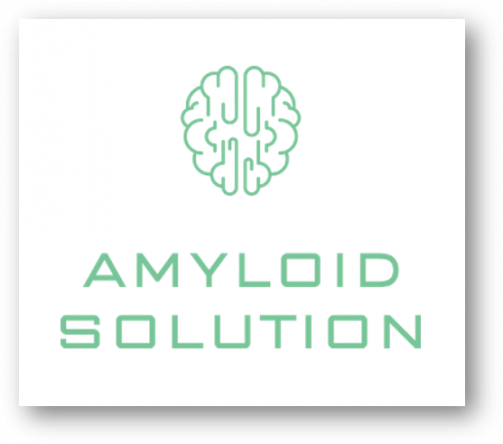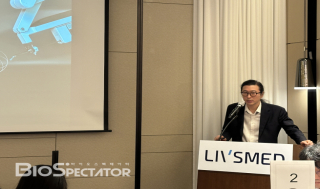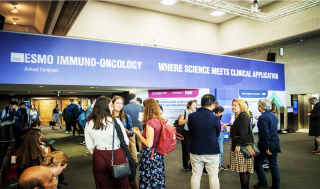기업
Amyloid Solution raises $14.8M Series B...Yuhan participates as strategic investor
바이오스펙테이터 Sungmin Kim 기자
Led by KDB (The Korea Development Bank), Yuhan Corp. also participates in strategic investor (SI) as part of its open innovation in the CNS…Planning U.S. clinical trials for two Alzheimer candidate

Amyloid Solution, which develops new drugs for the treatment of Alzheimer's disease, has prepared a financial base ahead of full-scale U.S. clinical development. Amyloid Solutions is developing targeted therapeutics to diversely target several etiologies that cause Alzheimer's
On 6th, Amyloid Solution has successfully attracted 18 billion won(about $14.8 million) in Series B investment. Since its establishment in September 2017, Amyloid Solutions has secured a total of 32.5 billion won for this investment together with 14.5 billion won in Series A in 2019.
This investment was led by KDB Industrial Bank, investing 10 billion won, and TS Investment and K-Clavis Investment, a new investor, participated as financial investors. In addition, Yuhan Corp., which has recently been promoting open innovation in the CNS field, has invested 5 billion won as a strategic investor; thus, Amyloid Solution secured 18 billion won in total. Amyloid Solution is discussing additional investment with several investment companies, explaining that the size of the final Series B will be slightly larger.
The investment will put on processing U.S. clinical trials of two Alzheimer's disease candiates, planned for next year. In order to prepare for full-fledged clinical development, the company recently completed setting up an internal clinical development team.
Possible candidates for next year's clinical trials are ‘Aβ disaggregator’, a small molecule compound that breaks down amyloid β-aggregate, and an IgG4-based antibody that targets TLR2, a mechanism that reduces neuroinflammation. The TLR2 antibody is a candidate substance obtained from Opsona Therapeutics, a company taken over this February; TLR2 antibody is under development with a strategic partnership with Nuramedi.
In addition, Amyloid Solution will speed up R&D development of follow-up project. Amyloid Solution is exploring small molecular compounds or antibody candidates targeting glia cells with an approach of neuro-immunology,
Alzheimer's disease, on the other hand, accounts for more than 70% of dementia. Currently, there are only symptom relievers with no treatments available. Big pharmaceutical companies invested a lot of money for this disease, but failed repeatedly. However, there are clues for the development of therapeutic agents while deepening the understanding of the complex mechanisms that cause Alzheimer's disease in previous failures.
Based on the fact that Alzheimer's disease is difficult to treat with the single target/drugs, Amyloid Solution believes it requires patient’s biomarker based treatment. Important factors that cause the disease depend on the stage of disease progression, family history, and inheritance of patients with Alzheimer's disease. Kim Hye-ju, Amyloid Solution R & D group leader, said, “We are conducting comprehensive navigation on new mechanisms such as amyloid proteins (amyloid β, tau, etc.) presumed to be the cause of Alzheimer's disease, and mechanisms of homeostasis including neuroglia cells, neuroinflammation, and lipid metabolism. We are focusing on the new targets and finding the biomarkers".
On the company’s development strategy, Park Sang-hun, director of R&D Strategy, said that "We will quickly develop therapeutics with new mechanisms for targets that have already been identified and enter the market early while simultaneously discovering innovative targets and developing new targets. We are promoting efforts to create therapeutic areas in parallel. This year, two pipelines, including a new drug with a new mechanism targeting amyloid protein and a "first-in-class" antibody targeting glial cells, are being prepared for the US clinical application”.
Jang Jin-tae, CEO of Amyloid Solution, said “This investment has enabled us to build a new clinical organization and secure global execution capabilities. Despite the difficulties from proliferation of COVID-19 while in the process of Series B, we had received a lot of supports from following companies. First, Yuhan Corp. has joined as a development partner for the treatment of Alzheimer's disease. Second, KDB’s scale-up finance team has been supporting global biotech growth with large investments. And third, TS Investment and K-Clavis Investment continuously support the company's growth. All of these supports will enable us to grow as a global company in the Alzheimer's therapeutic market."














![[BioS 레터]무균주사제 공급망 변화와 CDMO 대응](https://img.etoday.co.kr/crop/77/77/2262816.jpg)



